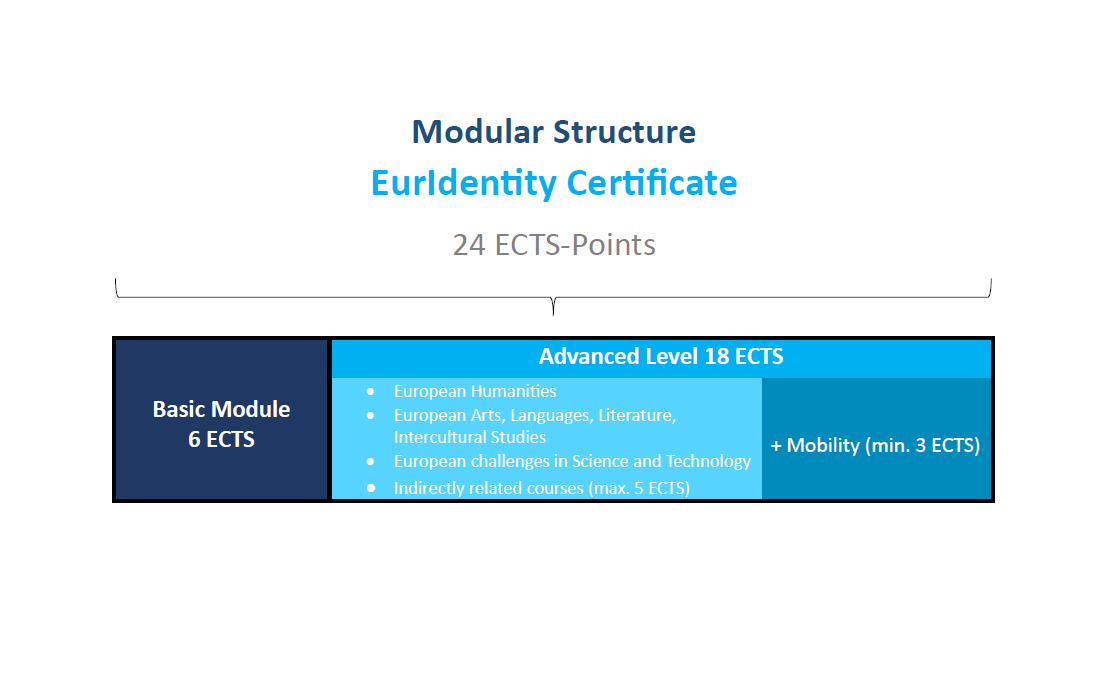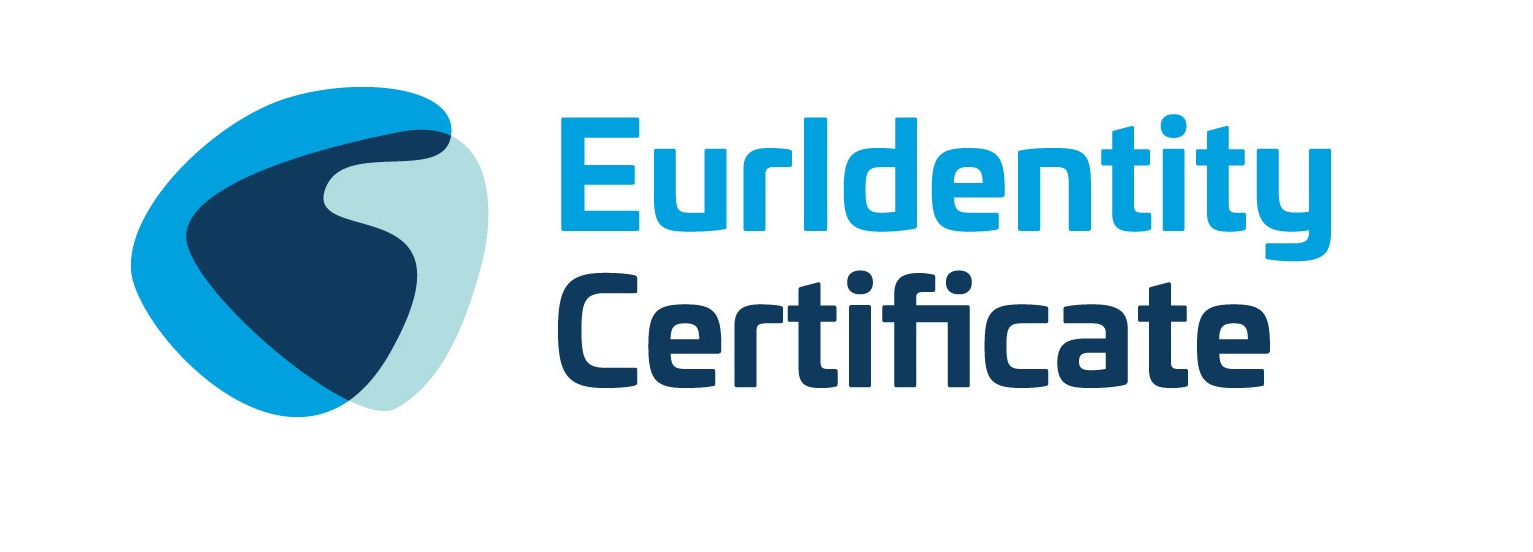Programme
The programme consists of 24 ECTS, divided into two modules:
The Basic Module (6 ECTS) and the Advanced Level (18 ECTS)

EurIdentity Basic Module: Foundations of Europe
The EurIdentity Basic Module ‘Foundations of Europe’ consists of 12 online sessions that introduce students to fundamental aspects of key European issues. The learning material of the online courses can be consulted at any time via the web-based learning platform OpenOLAT.
With a total running time of 40 hours, the 12 sessions cover aspects of European culture, European law, European history, the EU and climate change, the European labour market and European politics.
What makes the module format so unique is the choice of lecturers. All 12 sessions are taught in English by different experts from the seven UniGR partner universities.
- Identity politics and representations: Group formation in the 20th and 21st centuries (3h)
- Sociology of religious and philosophical pluralisms (2.5h)
- Rule of law and fundamental rights in Europe (3h)
- European economic and Social History 1870-2020 (3h)
- History of Public Power in Europe 1870-2020 (3h)
- Art trends in Europe (2.5h)
- European Labour Market (2.5h)
- Actors and decision-making processes in Europe (5h)
- The Economic Dimension of the European Union (5h)
- European geopolitical actors and issues (3h)
- Rights and duties of European individuals (4h)
- European scientific and environmental challenges and issues (3h)
EurIdentity Advanced Level
The EurIdentity Certificate Advanced Level provides a deeper insight into European topics. Students can choose different courses from the course catalogue of their home university and from of the UniGR partner universities, according to their individual interests, and thus qualify for the international, cross-border job market.
Students will receive 18 additional ECTS credits. They must complete the EurIdentity Basic Module “Foundations of Europe” and an international mobility period.
Course topics
Students can choose courses from the following areas/topics (it is possible to choose one or more topics):
- European Humanities
- European arts, European languages, European literature and intercultural studies
- European challenges in science and technology
- European governance and European politics
- Courses indirectly related to Europe (a maximum of 5 ECTS can be chosen from this division).
International mobility
In addition to specialised knowledge in European topics, students will gain complementary practical experience through cross-border exchanges with universities in the UniGR network or another European university. The mobility can be virtual or on-site and must be worth at least 3 ECTS credits.
The courses chosen must be agreed upon in advance with the programme director in a learning agreement and must fit the content of the certificate.
The University of Luxembourg grants a travel allowance for attending courses at the UniGR partner universities via the UniGR mobility fund.
Course catalogues
With the UniGR student status, students can take courses at any of UniGR’s partner universities.
This gives students a wide choice of courses.
